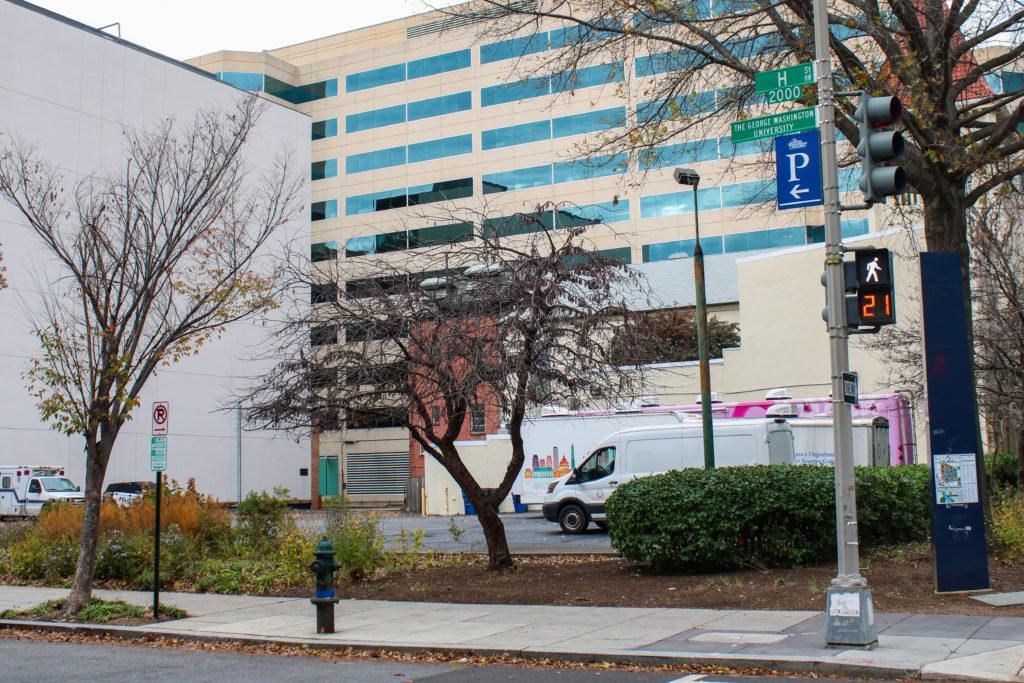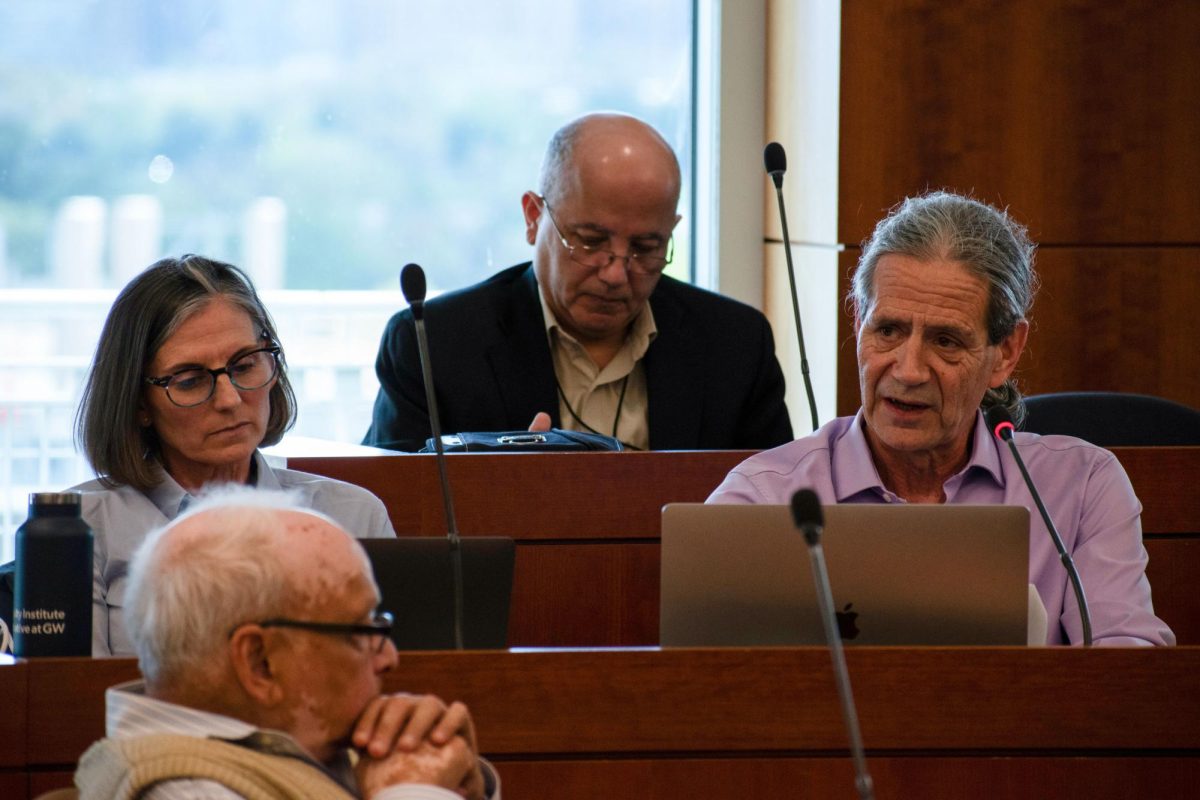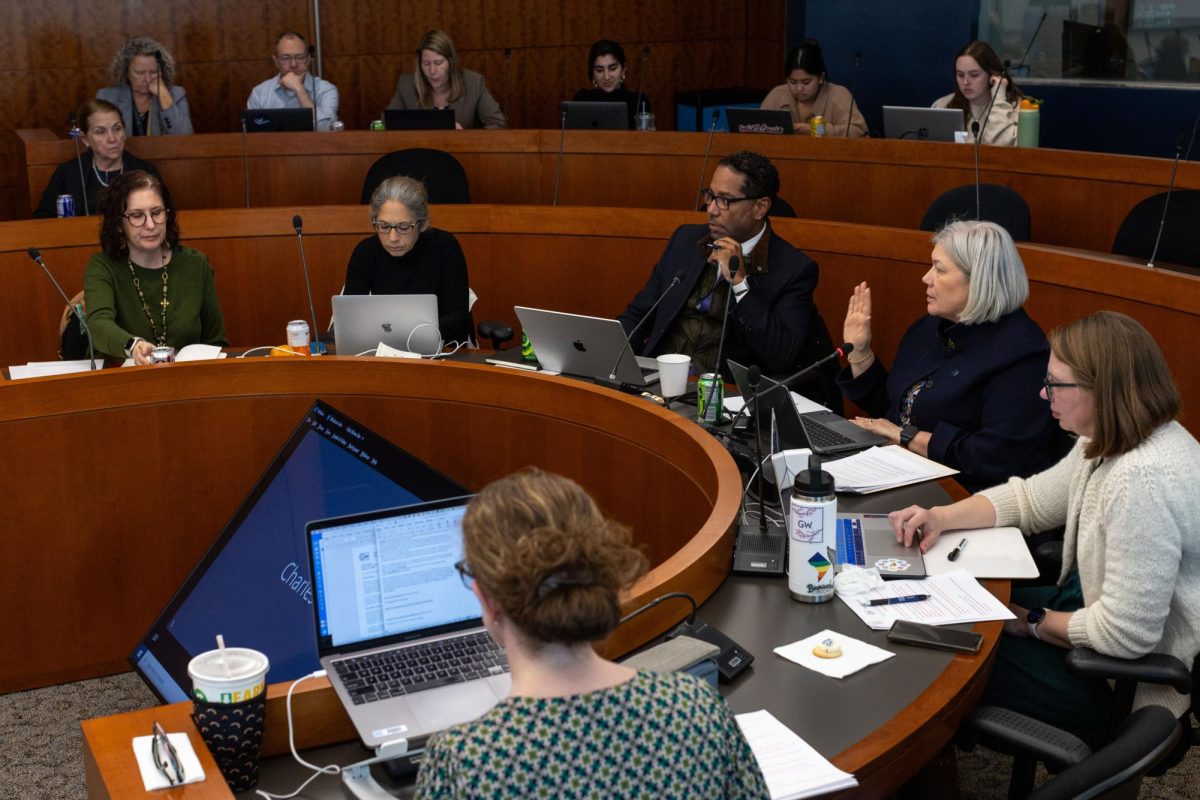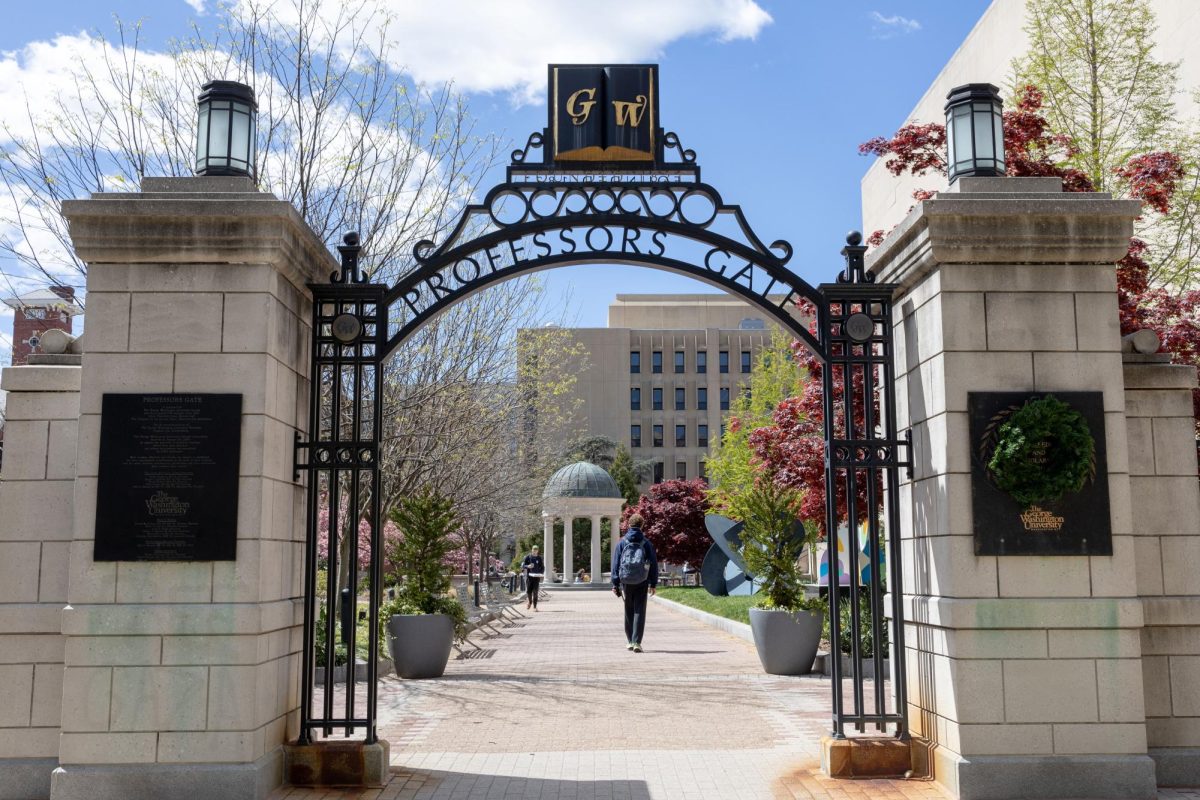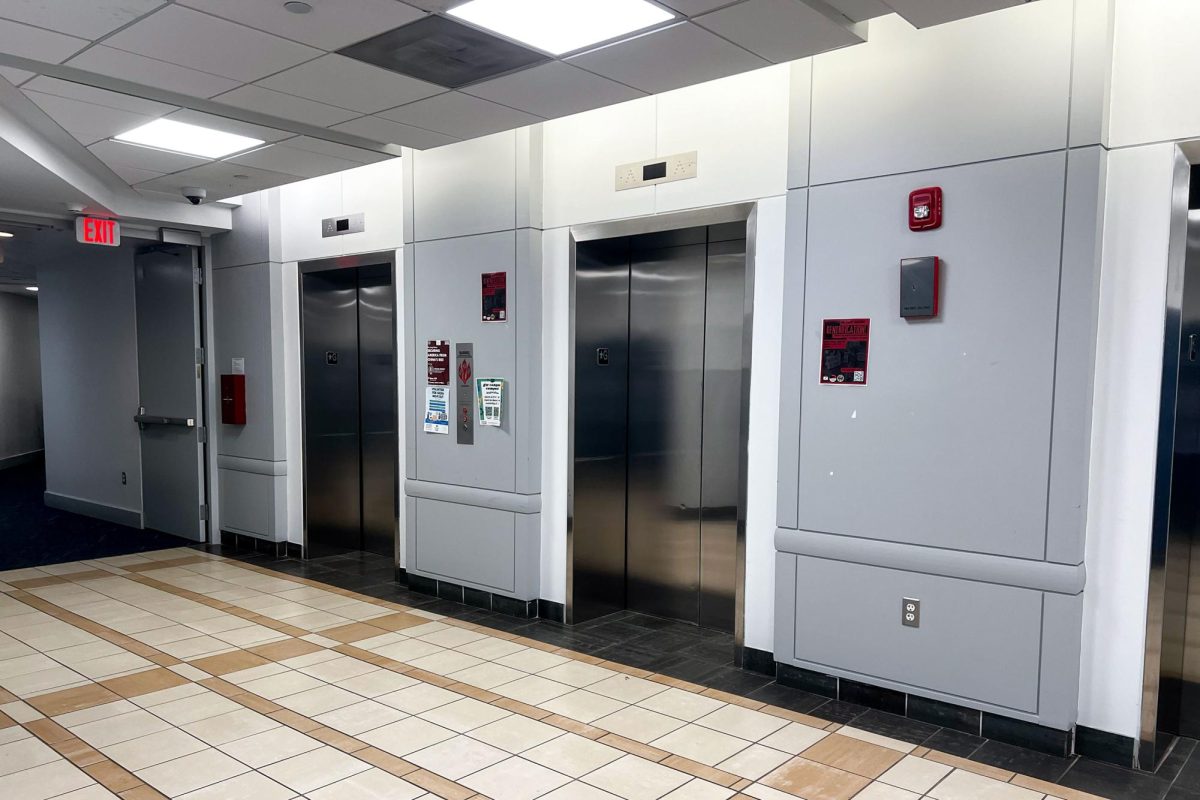Updated: Nov. 14, 2022 at 10:25 a.m.
Faculty senators passed a resolution in support of building a new 320-bed residence hall at the abandoned lot on the corner of 20th and H streets during a Faculty Senate meeting Friday.
The resolution endorses previous plans to construct a residence hall that officials paused during the COVID-19 pandemic, urges the administration to resume planning with “deliberate speed” and recommends the project be placed near or at the top of the University’s spending budget. With 22 yes votes, four no votes and one abstention, the resolution states the new residence hall is critical to attracting new students after the recent renovations of Thurston Hall, which removed 280 beds from the building and “substantially reduced” undergraduate housing.
Officials announced plans to build a new residence hall in December 2018 with hopes of finishing construction this fall, but COVID-19 suspended their plans. The 2018 blueprint for the 10-story building feature loft-style common rooms, community kitchens and retail space.
Interim University President Mark Wrighton said he feels “very positive” about advancing the plans for a new residence hall, which presents an opportunity to improve the student experience at GW.
“I think as I’ve spoken in many settings, we have a need to improve the uniformity of facilities across the institution,” Wrighton said. “That includes both academic and residential space.”
A COVID-19 testing trailer occupied the lot across from University Yard during the previous academic year before officials reassigned three locations on the Foggy Bottom Campus as new testing sites.
Eric Grynaviski, a member of the senate’s Educational Policy and Technology Committee and co-chair of the senate’s Physical Facilities Committee, presented the resolution to the faculty senators and said the new residence hall is necessary to provide flexibility for GW’s undergraduate enrollment targets. He also said the new residence hall can provide extra beds for students who may be moved around during any major renovations of other residence halls.
Grynaviski, an associate professor of political science, said there’s a “necessity for anchoring” the H Street lot to campus, providing dining options and improving the student experience for graduate students.
“I think that this resolution is actually not something which is particularly controversial,” Grynaviski said.
Faculty senators from GW Law backed the expansion of housing space but were hesitant to throw their support behind the location of the new residence hall across the street from the school’s Lerner and Stockton halls, expressing frustration over their lack of involvement in the plans.
Jeffrey Guttman, a professor of clinical law and a faculty senator, said he supports the construction of a new residence hall, but he and his colleagues at GW Law felt they weren’t included in the plans for building the hall. He said the construction of the residence hall across the street from the law school buildings impacts GW Law because of its proximity, and he hopes officials will include law school faculty in future plans to develop residence halls on campus.
“I don’t doubt that we need another dorm and maybe two more dorms,” Guttman said. “The question in my mind is where to locate them.”
Phil Wirtz, a professor of decision sciences and psychology and a faculty senator, said the administration and Faculty Senate committees have examined the H Street location as the potential residence hall construction site and decided it would be the most suitable of any potential alternatives.
“If it hadn’t been for COVID, the dorm would have been built by now,” Wirtz said.
Rachel Moon, Eóighan Noonan, Lauren Patrick, Fiona Bork, Caitlin Kitson, Nick Pasion and Ianne Salvosa contributed reporting.
This post has been updated to correct the following:
The Hatchet incorrectly reported that Grynaviski was the chair of the senate’s Educational Policy and Technology Committee. He is a member of the committee. We regret this error.


